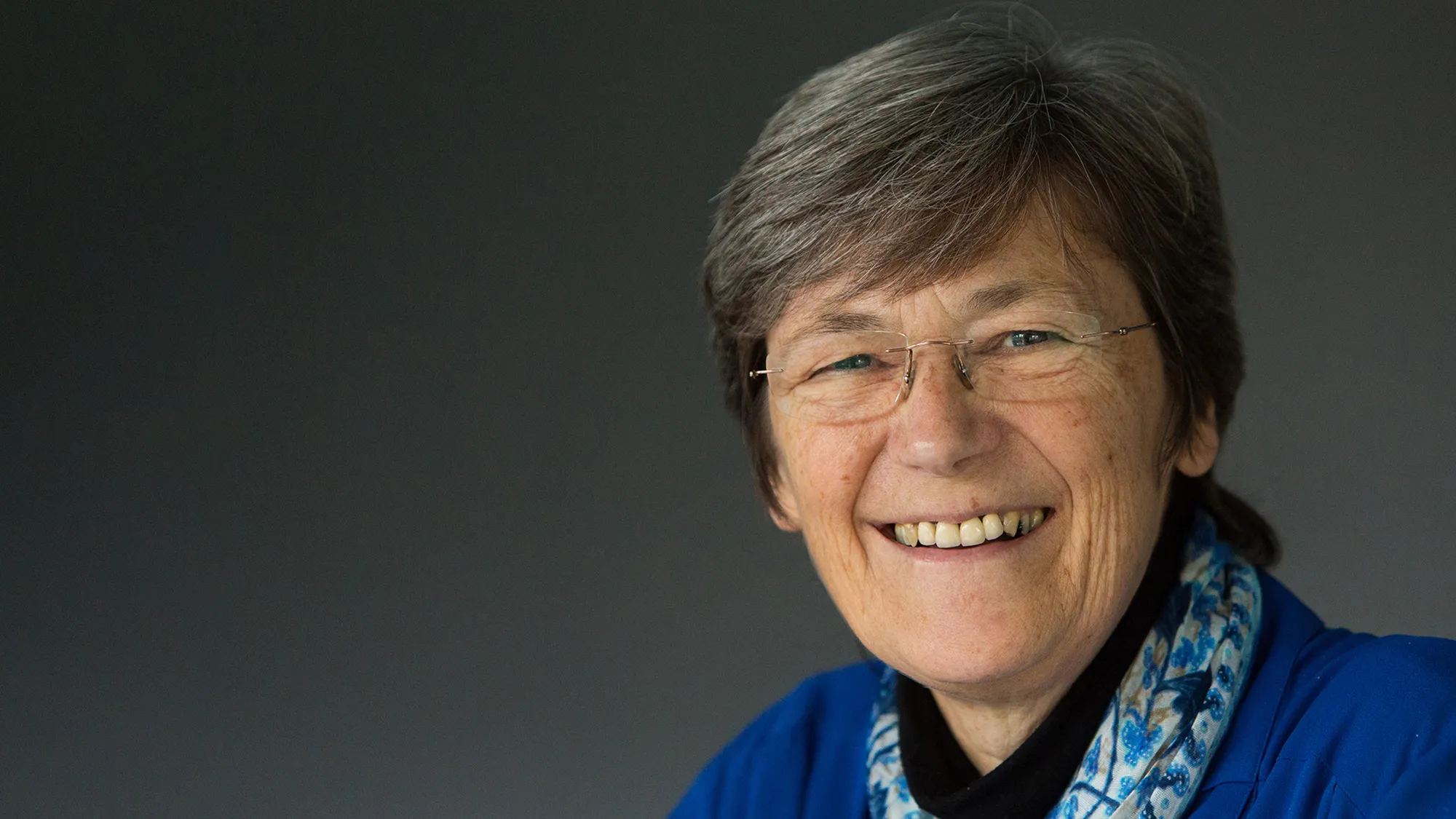Elisabeth Smyth: 261 Months with FIEC
Elisabeth recalls some of her experiences during more than 20 years of service and shares her hopes for the future.
It’s January 1999: Tony Blair has been Prime Minister for less than two years. Movie-goers are getting ready to see The Matrix on the big screen, while Bill Clinton is still the American President.
In the FIEC office in Croydon – a new member of staff has joined the team.
Elisabeth Smyth retired in September 2020 after more than 20 years of service with the Fellowship, latterly transforming our work amongst women in ministry as our first Women’s Ministry Co-ordinator.
Her first role was serving as PA to Bev Savage, who was appointed FIEC General Secretary in 1999. Elisabeth and Bev didn’t work out of the Croydon office, instead working from Bev’s converted garage. Perhaps that’s because the office in Croydon was in a small basement, offering just two narrow windows below the ceiling so that you could watch people’s shoes pounding the pavement outside.
At the time, FIEC and FIEC Ltd had a staff team equal to eight full-time members plus two volunteers. It was six years later that Bev retired from his role but Elisabeth believes the prayers of those years laid the foundations for what FIEC would become.
Elisabeth shared about her time at FIEC and her hopes for the future on a Zoom interview. You can watch the full interview below or read on for a summary.
Foundations
“Bev retired in 2004 and, looking back over those first six years, my clearest memories are of praying at every staff and committee meeting that the Lord would raise up a new generation of men for ministry. I see the fruit of those prayers at every Hub Conference, Leaders’ Conference and Local Conference.
“But, wonderfully, I also see it at Thrive – our annual conference for women in ministry. We didn’t pray for a new generation of women for ministry, but God has given more than we asked!”
Twelve churches affiliated to FIEC in 1999 and the Pastors’ Association - which later became the Pastors’ Network - was just six months old.
But it was a time of rapid change for FIEC as Elisabeth recalls.
“In 2003 a Churches Consultation took place. Every church was visited, a questionnaire discussed with church leaders and the results collated. The churches requested these as priorities for FIEC to concentrate its resources on: church planting; supporting smaller churches; leadership training; equipping churches; acquiring new premises for FIEC centrally; and having a stronger public voice. It is fascinating to see how much of that is being realised 17 years on!
“I’ve lost count of the number of different job titles and responsibilities I have had in the past 261 months as various changes have taken place. In many ways, FIEC - its office and staff, its profile of churches, the breadth and depth of its ministry - is all unrecognisable from early 1999. But the Lord Jesus is the same saviour we served in 1999, his gospel has the same unique power to transform lives, the need of a dying nation is still the same.”
Changes at FIEC
Richard Underwood’s appointment as FIEC General Secretary in 2004 paved the way for “FIEC for a New Day” and the appointment of John Stevens in 2010 as the first National Director with a Trust Board saw even greater change. Elisabeth was appointed to her role as Women’s Ministry Co-ordinator in 2014.
She took on the work that was first established in 2003 by the Women’s Ministry Team, which was the vision of Sharon James, Julia Jones, and Kath Paterson. Current Mission Director Andy Paterson was the FIEC Council representative on that team.
Elisabeth built on this work, establishing a relational group of women who are set aside by their churches for pastoral ministry among women. That led to the establishment of Thrive, an annual retreat to encourage and equip these women in their ministry.
It was a shift in the way churches thought about the ministry of women as Elisabeth explains:
“There became much more of a willingness to see women as key workers – whether as an official appointment into a ministry role or not – and that was happening in FIEC centrally as well. More women were being invited into teams and committees in FIEC – that was happening in tandem with what was going on in the churches.
“I remember (former General Secretary) Richard Underwood saying that complementarianism shouldn’t be about what women can’t do, but more about what they can do. I think this was all in response to that, and an appraisal of what complementarianism in practice could really look like in the life of the church.
“But there is still work to do. I would like to see a more widespread, intentional discipleship of women for appropriate leadership roles within the church, so that gifted women God has given to our churches see their gifts recognised, nurtured and released into service. And I would like to see women being taught more intentionally to be able to discern the Scriptures for themselves and to teach the Scriptures to other women.”
The future
Elisabeth and her husband Ray are hoping to retire to the Isle of Wight and settle at Grace Church – an FIEC church on the island. It’s been quite a journey through many roles for Elisabeth at FIEC, and we will miss her very much. She concluded:
“The team, the vision, the work and ministry, the number of churches and Pastor’s Network members, and the perception of FIEC in the eyes of our churches has just grown and grown. But the foundations of FIEC were solid from the outset so, as one generation gives way to the next, there has always been great ground to build on.
“God has been utterly faithful.”









